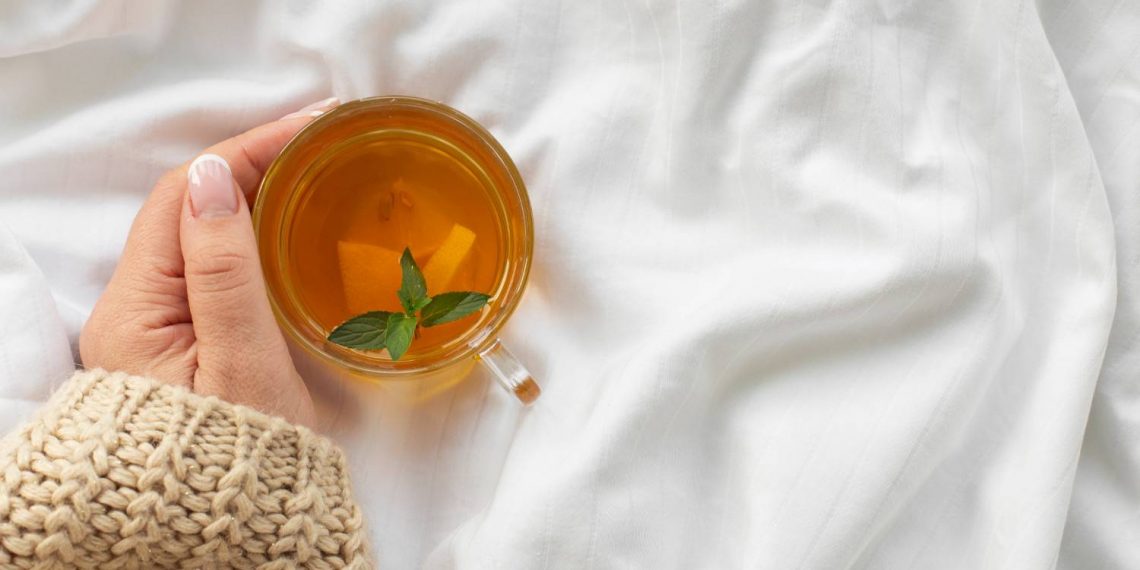Ever find yourself staring at the ceiling, counting sheep that just won’t jump over that fence? You’re not alone. Sleep troubles are all too common in our fast-paced world. While many turn to over-the-counter sleep aids, there’s a gentler, more natural route: tea. Yes, those warm, comforting mugs can be your ticket to a peaceful night’s sleep. Let’s dive into five soothing teas that might just help you drift off effortlessly.
Contents
1. Chamomile Tea: The Classic Calmer
Why It Works
Chamomile tea has been used for centuries as a natural remedy for anxiety and sleep issues. The active compound, apigenin, binds to specific receptors in your brain, promoting relaxation and drowsiness. It’s no wonder it’s a go-to for many!
Pros and Cons
Pros:
- Widely available: You can find chamomile tea in most grocery stores.
- Mild taste: Its gentle flavor is appealing to many.
Cons:
- Allergic reactions: Some people may experience allergies, especially those allergic to plants in the daisy family.
- Not suitable for everyone: Pregnant women should consult their doctor before consuming chamomile.
Personal Touch
I remember my first experience with chamomile. It was a chilly evening, and I was feeling anxious about a big presentation. A warm cup of chamomile worked wonders, wrapping me in a cozy blanket of calm. There’s something almost magical about sipping that warm brew.
2. Lavender Tea: A Floral Escape
Why It Works
Lavender isn’t just a pretty flower; it’s known for its calming properties. Studies have shown that inhaling lavender scent can improve sleep quality and reduce anxiety levels. Drinking lavender tea can have similar effects, helping you unwind at the end of the day.
Pros and Cons
Pros:
- Aromatherapy benefits: The scent alone can enhance relaxation.
- Pleasant flavor: With its floral notes, it’s a delightful change from traditional teas.
Cons:
- Taste preference: Some people might find the floral taste too strong.
- Hormonal effects: Lavender can affect hormone levels, so those with hormone-sensitive conditions should consult a healthcare provider.
A Little Anecdote
I once attended a wellness retreat where they served lavender tea each evening. The ambiance was serene, and the tea felt like a hug in a cup. I’ve since incorporated it into my nightly routine—there’s just something soothing about that lavender aroma wafting through the air.
3. Valerian Root Tea: The Sleepytime Staple
Why It Works
Valerian root is often referred to as a natural sedative. It’s believed to increase the levels of a neurotransmitter called GABA, which helps regulate sleep. Research suggests that valerian can reduce the time it takes to fall asleep and improve sleep quality.
Pros and Cons
Pros:
- Effective for sleep issues: Many studies support its use for insomnia.
- Non-habit forming: Unlike some sleep medications, valerian is generally safe for long-term use.
Cons:
- Strong taste: Some find its earthy flavor unpalatable.
- Possible side effects: Drowsiness, headaches, or digestive issues can occur.
Real Talk
I’ll be honest: the first time I tried valerian root tea, I wasn’t a fan of the taste. But after a few nights of good sleep, I learned to appreciate it. Sometimes, a little sacrifice in flavor is worth the reward of a restful night.
4. Peppermint Tea: The Refreshing Relaxant
Why It Works
While peppermint is often associated with digestion, it also has a calming effect on the mind and body. The menthol in peppermint can help relax muscles and soothe tension, making it easier to unwind before bed.
Pros and Cons
Pros:
- Digestive aid: If you’ve eaten too late, peppermint can help settle your stomach.
- Refreshing taste: Its invigorating flavor can be a nice change from sweeter teas.
Cons:
- Stimulant effect: For some, peppermint might be too stimulating close to bedtime.
- Not for everyone: Those with acid reflux may find it exacerbates their symptoms.
A Quick Story
One evening, after a heavy dinner, I decided to brew a cup of peppermint tea. Not only did it help with my digestion, but it also eased my mind. It was like a gentle reminder to slow down and breathe. Who knew a cup of tea could be so grounding?
5. Coriander Tea: The Under-the-Radar Gem
Why It Works
Coriander tea might not be the first that comes to mind when you think of sleep aids, but it has its own soothing properties. Known for its anti-anxiety and anti-inflammatory effects, coriander can help calm the mind and body, making it easier to drift off.
Pros and Cons
Pros:
- Unique flavor: It offers a warm, spicy taste that’s different from traditional herbal teas.
- Health benefits: Coriander is rich in antioxidants and may help with digestion.
Cons:
- Less common: You might have to search a bit harder to find it.
- Taste preference: Its flavor can be polarizing—some love it, while others don’t.
A Personal Encounter
I stumbled upon coriander tea during a visit to a local herbal shop. Skeptical at first, I decided to give it a try. To my surprise, it was delicious! Not only did it help me sleep, but it also introduced me to a whole new world of herbal remedies.
FAQs
1. How long before bedtime should I drink tea?
Aim to drink your tea about 30-60 minutes before bed. This gives your body time to relax without needing a late-night bathroom run.
2. Can I mix different teas?
Absolutely! Many people enjoy blending flavors. Just be cautious about the caffeine content and any potential interactions.
3. Are there any side effects to these teas?
Most herbal teas are safe for most people. However, always check for allergies and consult your healthcare provider if you’re pregnant or on medication.
4. How do I prepare these teas?
Simply steep the tea bag or loose leaves in hot water for about 5-7 minutes. Adjust the steeping time to suit your taste.
Conclusion
Finding the right tea can be a delightful journey toward better sleep. Whether you prefer the classic chamomile or the unique flavor of coriander, these soothing brews can help you unwind and prepare for restful slumber. The beauty of tea lies in its versatility—experiment, find what resonates with you, and savor the calming ritual.
So, the next time you find yourself tossing and turning, consider reaching for a warm cup of tea. It might just be the comforting companion you need to guide you into a peaceful night’s sleep.
Disclaimer: This article is for educational purposes only and is not a substitute for professional medical advice. Always consult a qualified healthcare provider before making changes to your health routine.
References
-
McKay, D. L., & Miller, A. L. (2003). Herbal tea and its role in health: A review. Journal of the American College of Nutrition, 22(3), 205-210. https://doi.org/10.1080/07315724.2003.10719232
-
Coon, J. T., & Ernst, E. (2006). Panax ginseng: A systematic review of adverse effects and drug interactions. Health Services Research, 41(2), 388-410. https://doi.org/10.1111/j.1475-6773.2005.00488.x
-
Mayo Clinic. (2021). Sleep disorders. Retrieved from https://www.mayoclinic.org/diseases-conditions/sleep-disorders/symptoms-causes/syc-20306763
Get Your FREE Natural Health Guide!
Subscribe now and receive our exclusive ebook packed with natural health tips, practical wellness advice, and easy lifestyle changes — delivered straight to your inbox.















